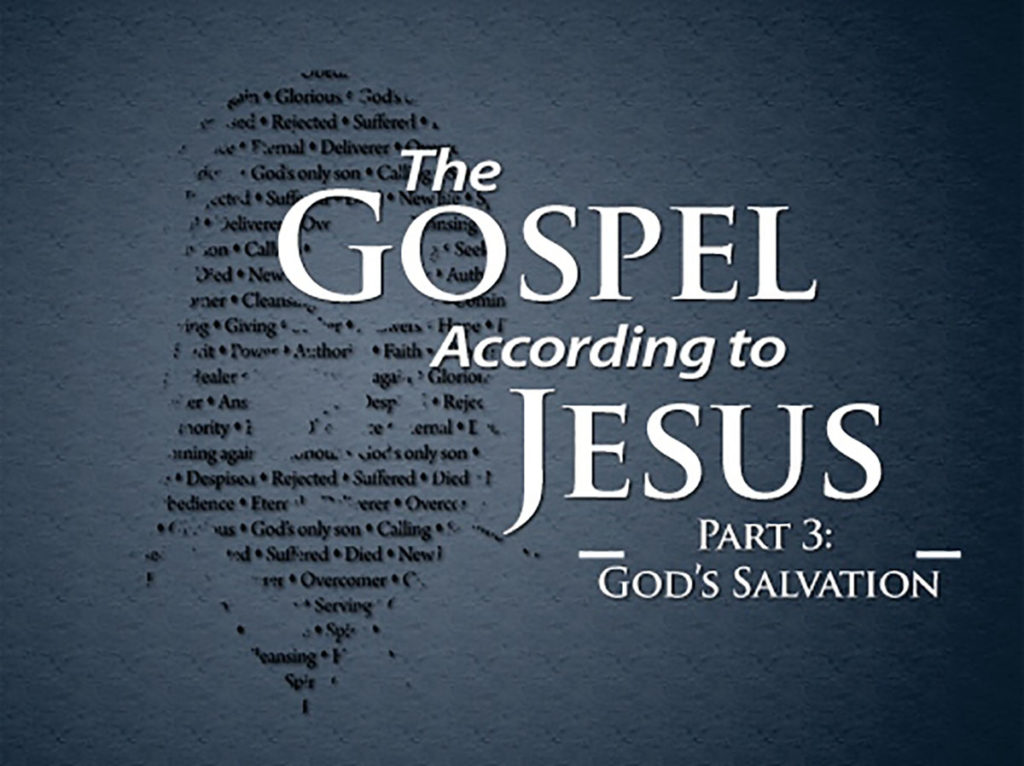
Returning
John 14:1-7
I Am the Way, and the Truth, and the Life
1 “Let not your hearts be troubled. Believe in God; believe also in me. 2 In my Father’s house are many rooms. If it were not so, would I have told you that I go to prepare a place for you? 3 And if I go and prepare a place for you, I will come again and will take you to myself, that where I am you may be also. 4 And you know the way to where I am going.” 5 Thomas said to him, “Lord, we do not know where you are going. How can we know the way?” 6 Jesus said to him, “I am the way, and the truth, and the life. No one comes to the Father except through me. 7 If you had known me, you would have known my Father also. From now on you do know him and have seen him.”
(ESV)
KövetkezőWhen Jesus ascended, two angels said to the disciples: “Men of Galilee, why do you stand looking into heaven? This Jesus, who was taken up from you into heaven, will come in the same way as you saw him go into heaven” (Acts 1:11). Christians await the great day when Christ will come again. Every believer will participate in that day. Those who have already died will come with Him, and we who are still alive will meet the Lord in the air (1 Thessalonians 4:14, 17).
Jesus spoke about His return often, but never more clearly than on the night before He died. It was a dinner in which everything seemed to go wrong. As we look back at the story of the Last Supper, we will discover the importance of the return of Jesus for our struggles today.
Early in the evening, Jesus shocked His friends by saying that someone at the table would betray Him. One after another they began to say, “Is it I, Lord?” (Matthew 26:22). Nobody said, “Lord, is it Judas?” Clearly, he was trusted and respected. After all, they had put Judas in charge of the money, and you don’t give a man your money unless you trust him.
John, who was sitting next to Jesus, asked Him who He was speaking about, and Jesus said, “It is he to whom I will give this morsel of bread” (John 13:26). Then He offered the bread to Judas.
Judas already had plans to betray Jesus, but now the final decision was made in his mind. John tells us that “after he had taken the morsel, Satan entered into him” (13:27). Notice the order of events. Satan entered into a mind that had been fully opened to his activity. Then, Judas went out, and John says, “It was night” (13:30).
There was more bad news to come. Jesus said, “Little children, yet a little while I am with you” (13:33). The disciples had left everything to follow Christ. They had staked everything on Him, and now after just three years, He was telling them that He would be with them only a little longer.
To be told that the person who means most to you in the world will only be with you for a little while longer is one of the hardest experiences a human being can endure, and this was what the disciples faced at the Last Supper.
Peter could not bear to think of being separated from Jesus, and he announced that he was ready to lay down his life for Him. But Jesus answered, “Will you lay down your life for me? Truly, truly, I say to you, the rooster will not crow till you have denied me three times” (13:38).
There had never been a day when the disciples had to deal with so much bad news. In one evening, they discovered that a trusted leader would betray the Savior, Jesus Himself would be taken from them, and His leading disciple would deny his faith.
When You Hear Disastrous News
What Jesus said next must have seemed absolutely staggering: “Let not your hearts be troubled” (John 14:1). How could Jesus possibly say this in the light of all that had just happened?
Imagine a church meeting where the congregation gathers for a few items of business. The chairman opens the meeting in prayer and says that he has three important announcements.
“First, I have to announce, with regret, that our senior pastor is leaving in a few days’ time. Second, you need to know that the church treasurer has resigned, and at this point we are not sure what he has done with the money. Third, our senior elder has denied the faith and no longer wishes to be associated with the church.”
The congregation is reeling at this triple announcement of disastrous news, but the chairman continues. “I know that some of you may have questions,” he says, “but the first thing I want to say is, do not let your hearts be troubled!”
What do you do if someone betrays your trust as Judas did? What do you do when a leader whose example you have looked up to shows himself to have feet of clay like Peter? And how do you cope when the person you have built your life around is no longer with you? The answer lies in the words of Jesus.
Jesus looked around the room, His piercing eyes gazing into the souls of His disciples. “Let not your hearts be troubled,” He said. “Believe in God; believe also in me” (14:1).
Jesus was not asking them to take a blind leap of faith. He was saying, “Here’s what I need you to do right now. Trust God! Trust in Me!” The disciples had seen His miracles, heard His words, and walked with Him for three years. Now they had to lean into all that they knew of Jesus. In this moment of great darkness, Christ called them to trust what He had taught them in the light.
One House with Many Rooms
Then, having called them to exercise faith in Him, Jesus spoke to them about the future: “In my Father’s house are many rooms” (14:2). The picture is of one great extended family living together in the Father’s home.
There is a special irony in Jesus speaking about the many rooms in His Father’s house. When Jesus was born, there was no room for Him in Bethlehem. The innkeeper had a small house and every room was taken. I cannot help but think that there must have been a smile on the face of Jesus as He was telling His friends, in effect, “Now don’t worry; when you come to My home, it won’t be as it was when I came to yours! You won’t find it overcrowded like Bethlehem. In My Father’s house are many rooms!”
Jesus spoke about home again later that evening, when He said, “If anyone loves me, he will keep my word, and my Father will love him, and we will come to him and make our home with him” (14:23). Literally Jesus said, “We will room with him.” Jesus is telling us that God will “room” with us by the Holy Spirit until He returns again, and then we will “room” with Him. God will move in with you until one day you move in with Him!
The future home of Jesus’ disciples is certain. Listen to the candor of Jesus: “In my Father’s house are many rooms. If it were not so, would I have told you that I go to prepare a place for you?” (John 14:2). If the disciples’ future were in any doubt, Jesus would have said so. But their future in heaven was assured, and for this reason they were not to be troubled.
The Way to the Father’s House
Having described the Father’s house, Jesus went on to explain how His disciples would get there: “I go to prepare a place for you” (14:2).
We are not to imagine Jesus working round the clock to get heaven ready for our arrival. Christ created the cosmos out of nothing with a word; He can get heaven ready for believers with a single command.
When Jesus said that He was going “to prepare a place,” He meant that through His going the place would be prepared. Through His death, resurrection, and ascension, Christ opened the way for all who believe to enter the glory of the Father’s house. His death and resurrection have made the place ready and reserved a block booking for all who will believe. And for this reason, Jesus says, “Let not your hearts be troubled.”
“I Will Come Again”
“If I go and prepare a place for you, I will come again and will take you to myself, that where I am you may be also” (14:3). Jesus was saying, “If I go through the agony of death and then rise on the third day and ascend into heaven to prepare a place for you, I will surely bring you there.”
If you were to spend your life savings on a priceless ring, it is inconceivable that, having written out the check and made the purchase, you would then leave the ring on the counter. Having paid the price, the ring would become your treasured possession, and you would bring it home.
This is why Jesus told the disciples that they were not to be troubled but rather to trust in Him. They had seen Judas leave, they had heard that Peter would fail, and they had been told that Jesus would be taken from them. It seemed that their world was falling apart, but it was not. Jesus was going to prepare a place for them, and they could be certain that He would bring them home.
An Unfinished Project
The glorious prospect of heaven may seem a long way off, but the promise is given to sustain us in the mess of our daily lives.
When we remodeled our bathroom, bare studs and pipes were exposed, and there was a hole in the ceiling for a new light. The place was functional, but nothing was as it would be. When my wife looked at the state of the place, I reminded her that she was looking at an unfinished project and that it would not always be like this. I said to her, “Do not let your heart be troubled.”
God’s plan for redeeming the world is in process, but it is not yet complete, and our lives in this world often look like a jumbled mess. But Jesus says, “Let not your hearts be troubled.” Remember that you are looking at an unfinished project. What you see now is not as it will be.
When you look in the mirror, you are looking at an unfinished project. The new life has already begun in you, but you still battle with the pull of the flesh and you are not yet what you will be. Like Peter, you have your failures as well as your successes, but it will not always be like this. Christ is coming, and when He appears, you will be everything God has made you to be. So do not let your heart be troubled.
Opened
The return of Jesus is a vital and practical truth that we need to grasp for living the Christian life today. There may be times when you are faced with devastating news. You may wonder what God is doing and what the future holds. But Jesus tells you not to let your heart be troubled. He invites you to trust Him and lean on what He has revealed about Himself. God’s work in you and in the world is an unfinished project, but it will be brought to completion when Jesus Christ returns in glory.
- Try to put yourself in the shoes of the disciples at the Last Supper. Which piece of bad news would have been most troubling to you? Why?
- Can you think of a time when you felt like you were in the dark and you had to lean into all that you already knew about Jesus?
- What is your reaction to Jesus’ words, “In my Father's house are many rooms. If it were not so, would I have told you that I go to prepare a place for you.”?
- On a scale of 1 (no confidence) to 10 (completely confident), how confident are you that Jesus will return to bring believers to heaven? Why?
- Where do you see God’s unfinished work, and where do you most need to apply Jesus’ words, “Let not let your hearts be troubled”?





